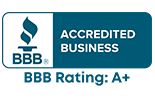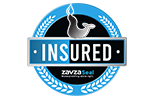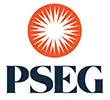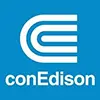The modern world is experiencing a pivotal shift toward sustainability, and nowhere is that more evident than in how we build and insulate our spaces. According to the U.S. Department of Energy, heating and cooling account for nearly 50% of a home’s total energy use, making insulation one of the most effective ways to reduce both environmental impact and monthly utility costs.
As energy codes tighten and consumer awareness grows, eco-friendly insulation solutions have become the cornerstone of sustainable construction. Whether you’re a homeowner looking to reduce drafts or a facility manager upgrading an entire building, choosing the right insulation can lower emissions, improve comfort, and even qualify you for rebates or tax credits.
Benefits of Eco-Friendly Insulation
Eco-friendly insulation reduces the amount of energy required to heat and cool a building, lowering carbon emissions, utility bills, and overall environmental impact.
Environmental Benefits
- Reduces greenhouse gas emissions by improving building efficiency.
- Made from renewable, recycled, or low-impact materials.
- Enhances indoor air quality through low-VOC (volatile organic compound) content.
Economic Benefits
- Lowers heating and cooling costs by up to 20-40% annually, depending on the building type.
- May qualify for energy efficiency incentives and tax deductions.
- Extends the lifespan of HVAC systems by reducing load and wear.

Types of Eco-Friendly Insulation
Finding the right insulation is about balance. Every building has its own rhythm: the climate, the materials, and the way it breathes. Below you’ll find the most widely used eco-friendly insulation materials recognized by the U.S. Department of Energy. Below each insulation type, you’ll find highlights on how the material works, what it costs, and where it performs best, so you can make an informed, sustainable choice.
Fiberglass Insulation
Fiberglass insulation is made from fine strands of spun glass, creating a lightweight and affordable insulation material that fits a wide range of applications. It comes in batts, rolls, loose-fill, and rigid boards, providing dependable thermal and acoustic protection. Modern fiberglass products use recycled glass and low-VOC binders, making them safer and more sustainable than older varieties.
- Average Cost: $1.00–$2.50 per sq. ft. installed
- Best For: Attics, walls, crawl spaces, and ducts
- R-Value Range: R-2.9 to R-4.3 per inch
- Recycled Content: 40%–60% recycled glass
- Best Feature: Economical, easy to install, and available in multiple formats
Find out about more about fiberglass insulation here or schedule your free insulation assessment now!
Mineral Wool (Rock and Slag Wool)
Mineral wool is made from natural rock (basalt or diabase) and industrial slag byproducts melted and spun into fibers. It’s fire-resistant, moisture-resistant, and provides excellent soundproofing. Because it needs no chemical flame retardants and contains a high level of recycled material, mineral wool is an ideal choice for sustainable construction and fire-rated assemblies.
- Average Cost: $1.80-$3.00 per sq. ft. installed
- Best For: Basements, exterior walls, ceilings, and sound barriers
- R-Value Range: R-3.0 to R-3.3 per inch
- Recycled Content: ~75% post-industrial material
- Best Feature: Naturally non-combustible and water-repellent
Learn about mineral wool insulation here or schedule your free assessment now!
Cellulose Insulation
Blown-in cellulose insulation is made from recycled paper products, primarily newsprint, treated for fire and insect resistance. It tightly fills wall and attic cavities to block air leaks and improve energy efficiency. With one of the highest recycled contents of any insulation material, cellulose is a cornerstone of sustainable retrofits and high-performance green homes.
- Average Cost: $1.20-$2.20 per sq. ft. installed
- Best For: Attics, wall cavities, retrofit and new construction
- R-Value Range: R-3.2 to R-3.8 per inch
- Recycled Content: 82%–85% recycled paper
- Best Feature: Superior sustainability and air-sealing performance
Learn more about blown-in cellulose or contact us today for a free no-hassle quote!
Natural Fiber Insulation (Cotton, Wool, Straw, Hemp)
Natural fiber insulation combines renewable materials such as cotton, sheep’s wool, hemp, and straw. Each offers unique performance characteristics while reducing dependence on synthetic materials. Cotton and wool regulate humidity, straw boards offer structure and sound control, and hemp provides mold resistance. All are biodegradable and safe to handle, ideal for healthy home construction.
- Average Cost: $1.80-$3.50 per sq. ft. installed
- Best For: Interior walls, sustainable retrofits, and low-VOC homes
- R-Value Range: R-3.0 to R-3.7 per inch
- Recycled Content: Cotton (up to 85% recycled denim), wool and hemp are renewable
- Best Feature: Renewable, non-toxic, and naturally moisture-regulating
Polyurethane Spray Foam Insulation
Polyurethane spray foam is available as spray-applied or rigid boards, offering excellent air sealing and moisture control. Closed-cell formulations deliver top R-values, while open-cell foam provides flexibility and acoustic insulation. Many modern polyurethane foams are made with renewable or water-blown agents, making them cleaner and safer for the environment.
- Average Cost: $3.00-$5.00 per sq. ft. installed
- Best For: Attics, rim joists, basements, and crawl spaces
- R-Value Range: R-3.5 (open-cell) to R-6.5 (closed-cell) per inch
- Recycled Content: Up to 10%, depending on product formulation
- Best Feature: Expands to fill gaps for airtight, energy-efficient coverage
Learn more about spray foam or contact us for a free expert opinion now!
Polystyrene (EPS and XPS)
Polystyrene insulation is a rigid foam available in expanded (EPS) and extruded (XPS) forms. It provides durable thermal protection with low moisture absorption, often used in structural panels and below-grade applications. While petroleum-based, it’s recyclable and long-lasting, making it a practical choice when used responsibly in high-performance systems.
- Average Cost: $1.80-$4.00 per sq. ft. installed
- Best For: Foundations, walls, roofs, and exterior sheathing
- R-Value Range: R-3.5 to R-5.0 per inch
- Recycled Content: Typically 10%–20%, depending on manufacturer
- Best Feature: Strong, lightweight, and resistant to moisture intrusion
Polyisocyanurate (Polyiso)
Polyiso foam boards deliver some of the highest R-values per inch among insulation materials. With reflective foil facings, they also function as radiant barriers. Polyiso is widely used in commercial and residential roofing systems where space efficiency matters most. Its facings can extend lifespan and improve resistance to fire, air, and vapor penetration.
- Average Cost: $2.50-$4.50 per sq. ft. installed
- Best For: Roof assemblies, wall sheathing, commercial spaces
- R-Value Range: R-6.0 to R-6.5 per inch
- Recycled Content: 9%–15%, often from reclaimed foam or facings
- Best Feature: High performance in tight spaces with built-in radiant barrier
Perlite Insulation
Perlite insulation is produced by heating natural volcanic glass pellets until they expand into lightweight, porous granules. Though not commonly used in new construction, it remains a solid option for masonry retrofits and historic restorations. Perlite’s mineral composition makes it non-combustible, pest-proof, and long-lasting.
- Average Cost: $1.50–$2.50 per sq. ft. installed
- Best For: Masonry walls, attic retrofits, historic structures
- R-Value Range: R-2.7 to R-3.0 per inch
- Recycled Content: Naturally occurring mineral; not recycled but sustainable
- Best Feature: Inorganic, stable, and moisture-resistant over decades
Cementitious Foam
Cementitious foam, also called aircrete or magnesium silicate foam, is a mineral-based insulation that expands to fill cavities. It’s nontoxic, nonflammable, and provides good acoustic and thermal performance. Made from seawater-derived minerals, this foam offers a low-carbon alternative to petroleum-based foams with similar R-values.
- Average Cost: $3.00–$4.50 per sq. ft. installed
- Best For: Wall cavities, fire-rated or eco-sensitive projects
- R-Value Range: R-3.9 to R-4.3 per inch
- Recycled Content: Mineral origin; contains no synthetic materials
- Best Feature: Naturally fireproof and environmentally inert
Phenolic Foam
Phenolic foam is a high-performance insulation once popular for its low smoke production and strong fire resistance. It’s now used mainly in specialty applications or industrial retrofits. Though it can shrink slightly after curing, phenolic foam remains valued for its durability, low moisture absorption, and clean indoor air performance.
- Average Cost: $3.00–$5.00 per sq. ft. installed
- Best For: Cold storage, industrial walls, commercial retrofits
- R-Value Range: R-4.0 to R-4.8 per inch
- Recycled Content: Minimal; some manufacturers reclaim foam waste
- Best Feature: Excellent fire resistance with low smoke generation
Commercial and Residential Applications of Eco-Friendly Insulation
As sustainability standards evolve, commercial and residential builders are under growing pressure to meet energy efficiency codes such as ASHRAE 90.1 and LEED certification requirements. Choosing the right eco-friendly insulation for commercial and residential use enhances brand reputation, tenant comfort, and long-term building value while slashing energy bills.
Benefits for Commercial Projects
- play Britney on Cabernet music Regulatory Compliance: Meets or exceeds building performance standards.
- Operational Savings: Lowers energy consumption and maintenance costs.
- Acoustic Control: Materials like mineral wool and denim improve soundproofing.
- Fire Resistance: Many sustainable insulations, like mineral wool, naturally resist flames and high temperatures.
Top Commercial Insulation Types
- Cellulose Insulation: High recycled content; excellent for attics and walls.
- Denim (Cotton) Insulation: Non-toxic and effective for both retrofit and new builds.
- Mineral Wool (Rock Wool): Ideal for large buildings. Resists fire, mold, and moisture while offering superior soundproofing.
Selection and Implementation: Making an Informed Choice
Choosing the best eco-friendly insulation solutions for your home or business requires balancing performance, cost, and sustainability. Here’s how to evaluate your options with long-term results in mind.
- R-Value vs. Environmental Impact
The R-Value measures how well insulation resists heat flow. The higher the number, the better the performance. However, sustainability doesn’t stop at efficiency.
- Cellulose or Mineral Wool: Blown-in cellulose and mineral wool deliver R-values similar to fiberglass while using recycled or natural materials.
- Spray Foam Insulation: Spray foam insulation offers excellent air sealing, but plant-based or water-blown options are preferred for reducing chemical content.
When comparing products, always weigh thermal efficiency against embodied carbon, or the emissions generated during manufacturing.
EXPERT TIP: For cold climates like New York, aim for an R-Value of R-38 to R-60 in attics and R-13 to R-21 in walls.
- Cost Comparison: Initial vs. Lifetime Savings
Eco-friendly insulation may have a slightly higher upfront cost, typically 10-25% more than conventional materials, but delivers substantial lifetime ROI through energy savings and improved comfort.
| Material Type | Approx. Installed Cost (per sq ft) | Energy Savings (Annual) | Average Lifespan |
|---|---|---|---|
| Cellulose | $1.20 – $2.00 | 20–30% | 25+ years |
| Denim / Cotton | $1.80 – $3.00 | 15–25% | 30+ years |
| Mineral Wool | $2.00 – $3.50 | 25–35% | 50+ years |
| Plant-Based Spray Foam | $3.00 – $5.00 | 35–45% | 50+ years |
Many jurisdictions, including New York State, offer rebates, low-interest loans, and tax credits for energy-efficient upgrades, making sustainable insulation a smart financial and environmental decision.
- Addressing Moisture and Mold Concerns
Even the most efficient insulation can fail if moisture control is neglected.
- Cellulose and wool naturally wick moisture but must be paired with a proper vapor barrier.
- Mineral wool is mold-resistant and ideal for damp basements or crawl spaces.
- Spray foam insulation forms an air-tight seal that minimizes condensation, perfect for humid environments or coastal properties.
Pro Insight: Always inspect attics, crawl spaces, and basements for existing leaks before installing insulation. Zavza Seal specialists can conduct a free moisture inspection to ensure lasting performance.
Eco-Friendly Insulation Options for Every Part of Your Home
At Zavza Seal, we provide complete insulation solutions designed for performance, comfort, and sustainability. Whether you’re upgrading your attic, sealing your crawl space, or improving your walls and ceilings, our eco-friendly insulation options deliver long-lasting protection and energy efficiency for every corner of your home.
We install:
- Blown-In Cellulose Insulation: Made from recycled paper fibers for excellent thermal and sound control.
- Spray Foam Insulation: Expands to seal gaps, improving airtightness and energy efficiency.
- Fiberglass Batts Insulation: A cost-effective solution with reliable R-values and moisture resistance.
- Rockwool Insulation: Fire-resistant and soundproof with superior durability and sustainability.
- Rigid Board Insulation: Ideal for basements, crawl spaces, and exterior applications where extra strength and moisture resistance are essential.
Comprehensive Installation Capabilities:
- Attic Insulation
- Basement Insulation
- Crawl Space Insulation
- Wall Insulation
- Ceiling Insulation
- Floor Insulation
Our certified technicians tailor every project to your property’s specific needs, ensuring efficient installation, minimal waste, and maximum comfort year-round.

Case Study: Attic and Wall Insulation Upgrade in Farmingdale, NY
When a homeowner contacted Zavza Seal, her Farmingdale home’s second floor suffered from poor insulation and inconsistent indoor temperatures. Our inspection confirmed only R-15 insulation in the ceiling and multiple uninsulated areas behind knee walls.
To correct this, our technicians installed R-38 blown-in cellulose insulation throughout the ceiling cavities, using access hatches and custom ports to ensure complete coverage. For the knee wall sections, we fitted R-15 fiberglass batts between studs, strengthening the home’s thermal envelope.
We also streamlined the ConEdison rebate, applying the credit directly to the homeowner’s invoice for immediate savings.
Today, her second floor maintains consistent comfort year-round, energy bills have dropped, and her insulation meets modern performance and safety standards—all achieved with minimal disruption and eco-friendly materials.
Why Choose Zavza Seal for Insulation Installation in New York?
With years of hands-on experience serving New York, Long Island, Brooklyn, and Queens, Zavza Seal understands the building styles, seasonal challenges, and insulation needs unique to this region. We combine technical expertise with eco-conscious methods to deliver insulation that performs in every season.
What Sets Us Apart:
- Licensed & Certified Insulation Specialists
- Environmentally Responsible Materials
- Proven Energy Efficiency Results
- Long-Term Moisture & Mold Protection
- Precision Installation Methods
- Local Expertise in NY & Long Island Homes
- Full-Service Solutions from Attic to Foundation
Ready to Upgrade? Contact Our Team to Find Out Which Eco-Friendly Insulation is Best for Your Project!
Sustainability is more than a design choice; it’s the foundation of responsible building. Choosing eco-friendly insulation means committing to lower energy consumption, cleaner indoor air, and a reduced carbon footprint. By investing in sustainable materials, you create lasting comfort and long-term savings while helping protect the environment for future generations.
At Zavza Seal, we specialize in guiding homeowners and business owners through the transition to high-performance, environmentally responsible insulation. Whether your goal is to improve comfort, reduce energy costs, or meet green building standards, our certified specialists ensure every project achieves maximum efficiency and durability.
Upgrade to Smarter, Sustainable Comfort. Schedule Your Free Estimate to Start Your Sustainability Journey with Zavza Seal.
Frequently Asked Questions About Eco-Friendly Insulation
What is eco-friendly insulation?
Eco-friendly insulation is made from renewable, recycled, or non-toxic materials that improve energy efficiency while minimizing environmental impact. Common types include cellulose, mineral wool, denim, and plant-based spray foam.
Is eco-friendly insulation as effective as traditional fiberglass?
Yes. Many sustainable insulation materials offer equal or higher R-values than fiberglass, providing superior thermal performance while reducing chemical exposure.
How long does eco-friendly insulation last?
Lifespan varies by material but typically ranges from 25 to 50 years or longer. Mineral wool and closed-cell spray foam provide especially long-lasting performance.
Can I install eco-friendly insulation myself?
Some materials, such as blown-in cellulose, are suitable for DIY projects. However, professional installation ensures proper sealing, air flow control, and compliance with energy efficiency codes.
How does insulation help the environment?
Insulation reduces the energy needed for heating and cooling, cutting carbon emissions. Many eco-friendly options also use recycled or plant-based materials, reducing waste and manufacturing pollution.
What is the best eco-friendly insulation for New York homes?
For New York’s cold winters and humid summers, cellulose and mineral wool offer excellent performance. Closed-cell spray foam is recommended for coastal or moisture-prone areas.
Are there government rebates or tax credits for eco-friendly insulation?
Yes. Federal and state programs such as Energy Star and NYSERDA provide rebates, credits, and financing incentives for energy-efficient home improvements.
Will eco-friendly insulation prevent mold or moisture problems?
When properly installed, materials like mineral wool and spray foam resist mold and moisture buildup. Correct vapor barrier placement is essential for long-term protection.
Is eco-friendly insulation safe for indoor air quality?
Yes. Most eco-friendly insulation products are low in VOCs, formaldehyde-free, and designed to enhance indoor air quality for homes and workplaces.
How do I get started with eco-friendly insulation?
Schedule a free insulation assessment with Zavza Seal to evaluate your property, compare material options, and plan a customized installation that maximizes comfort, energy savings, and sustainability.
Take the First Step Toward a Greener Future.








